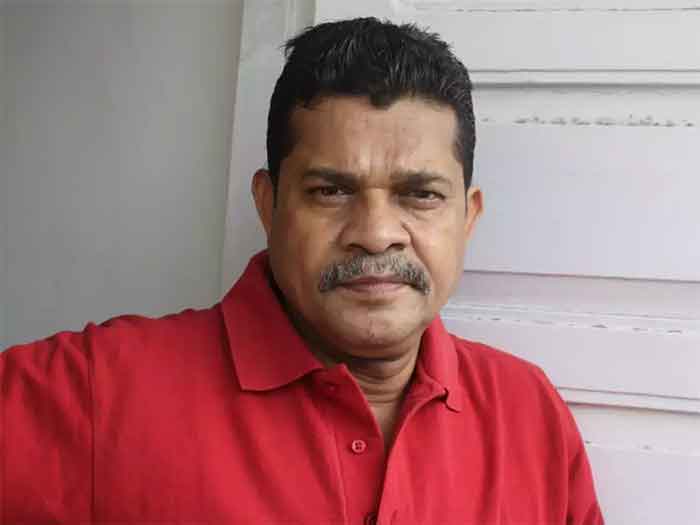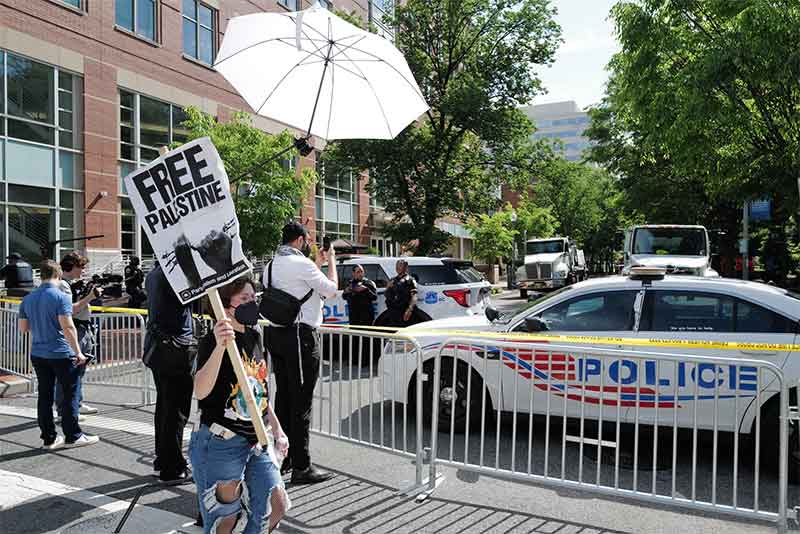This is an ode to a film script/story/dialogue writer known for his films like ‘I am Kalam’ and ‘Paan Singh Tomar’- Sanjay Chauhan. He passed away recently and this write-up is an attempt to commemorate his connect with all those who met him

I recall meeting you for the first time in that wooden cubicle which served as a sitting room for the visitors visiting us in our hostel some forty years ago! The sudden count of these years makes me feel that we have has a very long association! You were part of the group which was preparing for “Mati ke Rang”– a medley of renditions in the form of songs, dances, skits, spoofs, parodies, and street-plays portraying social and political satire, cultural moorings and economic hardships. You were training the campus kids to perform a skit. In fact, I learned about you from one of my teachers whose then school- going son was part of your ‘troupe’. Later, perhaps as part of the same programme, I saw you perform on the stage ‘26 Janvari’- a skit. It was about a little girl who was trained by her teacher to recite a poem on 26th January to commemorate the day in her school. As the little girl was performing, she noticed that the sweets were being distributed to the other children in the school. Her concentration flickers from the recitation for the fear that she may not get her share. So, as she eyes the sweet packets of other children irresistibly, she messes up with her lines to be recited. Instead of saying ‘chhabbis janvari ayi hai, sabko mili mithai hai…’ she says– ‘chhabbis janvari ayi hai, mujhko nahin mil mithai hai…!’ You enacted her so well with apt gestures and facial expression… and the voice modulations!! It still resonates on every Republic Day. In you, the audience that day, visualised that little girl who was the product of your imagination… or perhaps you really encountered her in the school where your mother was a teacher. Perhaps. The fact that it remained etched in my mind so distinctly even after four decades or so, is a testimony to your creative endeavour. Many more songs and dances, skits and street plays followed. As did the various editions of ‘Mati ke Rang’.
As my friend from college Ranu and I watched your group and you rehearse for the cultural medley, I do not recall how and when I found myself become a part of the group… especially because I was nowhere close to any of the creative activities you all would be putting together to bring these events alive. Except perhaps when Manju Di decided to train some of us for what was labelled in the University News bulletin as ‘thrilling tribal dance!’ You were part of the Bhangra! One fine evening, as we all sipped tea at the now famous Ganga Dhaba, you sprang up with a book titled ‘Pradhanmantri, Urmi aur Main’. Quite a peculiar title for a book…I thought. But as I learnt that you were the author, I was sure that no one else could dwell on a simple story with such a nuance to give it such an unusual title. You stood out in your creativity! And then there was this ‘laghu katha’ you wrote about a woman paragliding in Kalimpong… a place you had not visited till then, but the reader could not get an inkling of it in your vivid description of her experience. That is how creative you have been!
As time rolled, amidst classes, tea, library and occasional visits to Mandi House to satiate our creative thirst, we all got busy writing our respective MPhil dissertations. This was mid 1980s. You were writing on the works of Vijaydan Detha, renowned Rajasthani folk writer who decided to keep himself away from urban influence of any kind. Evenings would be the time to unwind after spending the day in the cubicles for the research scholars in the library. You would tell us how prodigious, yet humble was your muse who continued to live in his village Borunda, in Jodhpur and wrote profusely to bring the folklores of his land to the people outside. And he wrote in Rajasthani- a language not part of the 18 official languages recognised by the Indian constitution. Undauntedly unconventional! You imbibed this trait from the then living legend who penned over 800 short stories giving a modern touch and identity to the folk tales of Rajasthan. Your unconventional ways perhaps drew you to this legend to do your research! Your passion for ‘regional’ drew you to choose him and his work for writing your MPhil dissertation. In fact I have no qualms in admitting that I had known nothing about this legend till that evening when you spoke about your dissertation, as we sipped tea- ‘mil-kati’ as that young boy of 12-13 years would call out to identify those who had ordered milk-tea from the dhaba.
I think that is why you chose to work on the films that you did- from an unconventional story ‘Hazaaron Khwahishein aise…’ to an equally unusual title ‘I am Kalam’ to a very different way of handling the subjects of the films like ‘Maine Gandhi ko Nahin Mara’, ‘Sahab, Biwi aur Gangster’ and ‘Paan Singh Tomar’ to name a few. I distinctly remember, you visited us- my daughter and me, on your way to Morena for the preliminary research for the Paan Singh Tomar. I was awestruck… By then ‘Hazaaron Khwahisein…’ and ‘I am Kalam’ had already made their mark and declared your arrival in that big world of creativity- the Bollywood!! I also recall your more recent visit to the campus along with Swanand Kirkire as speakers in one of the post dinner sessions organised by the students. The feedback from the students was mesmerising. As was the experience to read your name in the credits of ‘I am Kalam’! As Shrawan and I watched the credits scroll down the screen, both of us read your name almost simultaneously- aloud, probably making a couple of heads turn towards us in the theatre.
I also wish to recall the time when I realised that you wrote a commentary on the works of Vishnu Chinchalkar, an unusual artist who chose to tread the lone trail rather than road to fame and glory. He used ordinary objects like driftwood, twigs, leaves, dried fruit pods, plant roots and similar ‘useless’ items to create art forms. His contemporaries were very critical of him and dismissed him for taking undue liberty with ‘Fine Arts’. One of his pieces used the sole of a rubber slipper, jute, empty (and rolled) toothpaste tube, buttons and thread to create a face- of a woman titled as ‘Monalisa’- if I recall correctly. This masterpiece was used in the write up you wrote for the journal Dinmaan. I had read this piece, perhaps even before I had joined the university. Subsequently, some of us- I think Vagish, Vidya, Roy Saab, Ramaiah and me, decided to accompany you to Bhopal, your home town. We visited Bharat Bhavan. There was this masterpiece- Monalisa by Vishnu Chinchalkar, in prints of the original. I saw and was pondering where did I see it earlier? It was then you disclosed about the piece you had written in Dinmaan! And I felt exhilarated!! WoW- I know an author!!! The only other author I could ‘claim’ to know till then was Gaura Devi Pant ‘Shivani’ who has sent me a postcard in response to my writing to her about ‘Surangama’ one of her novel I had then read.
Life moved on.
We all got busy with our lives and its ups and downs, occasionally connecting with each other.
Then one day I found myself sharing the platform with you as a resource person, in a university where Ranu, was heading the department which had extended the invitation. Your connect with the young students was instant, it sure was a respite to them after my boring lecture! I learnt the magic of extempore talking that afternoon- and have often tried to put it in practice since then.
When I met you in November last year, you had been in and out of the hospital. You looked hopeful with promise of recovery. That evening we consciously avoided conversation about your health. We did talk, but stopped after a certain point. In an attempt to divert, you rued about a very renowned film personality getting petty over his payment for his appearance in an event organised for a social cause. You soon retired for the day admitting exhaustion. Sarita, Sara and I continued talking for a little longer before we slept.
Two days short of two months later, on 12 January you left us- after giving your illness a tough fight. You are Sanjay Chauhan. Sanjay Bhai to many of us. Now you are just a thought away! Your endearing laughter is alive making others happy as always! You will always be there.
Dr. Sanghmitra Acharya, Professor and Chairperson, Centre of Social Medicine and Community Health, School of Social Sciences, Jawaharlal Nehru University, New Delhi














































